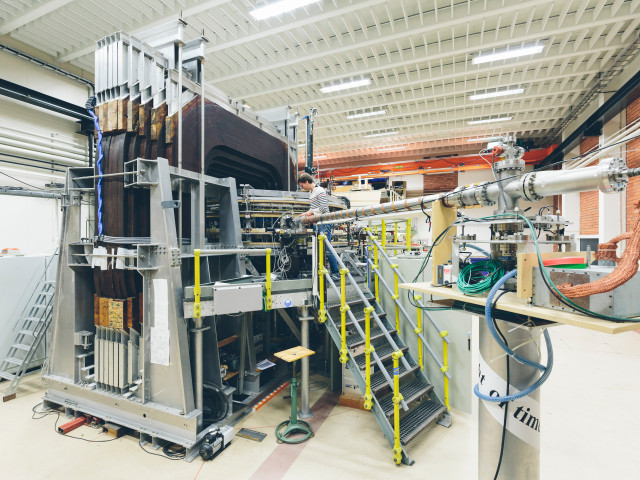Laser, Laser Beams, Optical Resonators, Spontaneous Emission, Stimulated Emission, Gain media, Pumping, Pulse Lasers, Continuous Wave Lasers, Solid-State Lasers, Gas Lasers, Semiconductor Lasers.
SK2813 Laser Engineering 7.5 credits
This course has been discontinued.
Decision to discontinue this course:
No information inserted
Information per course offering
Course offerings are missing for current or upcoming semesters.
Course syllabus as PDF
Please note: all information from the Course syllabus is available on this page in an accessible format.
Course syllabus SK2813 (Spring 2017–)Content and learning outcomes
Course contents
Intended learning outcomes
After the course the participants should be able to:
- Explain how a laser operates.
- Identify elemental components for a laser to operate.
- Describe properties of a laser beam and its comparison with light from other sources.
- Describe, analyze and coarsely design simple resonator systems required for a laser.
- Analyze and calculate the conditions for lasing in a gain medium.
- Depict the pumping schemes of laser.
- Identify the most common types of laser, and tell the difference.
Literature and preparations
Specific prerequisites
Bachelor's degree in physics, electrical engineering or equivalent degree
Literature
Orazio Svelto, ”Principles of Lasers”, 5th ed, Springer, 2010 (ISBN: 978-1-4419-1301-2).
E-bok: http://link.springer.com/book/10.1007/978-1-4419-1302-9/page/1
Examination and completion
Grading scale
Examination
- INL1 - Assignments, 1.5 credits, grading scale: P, F
- TEN1 - Exam, 6.0 credits, grading scale: A, B, C, D, E, FX, F
Based on recommendation from KTH’s coordinator for disabilities, the examiner will decide how to adapt an examination for students with documented disability.
The examiner may apply another examination format when re-examining individual students.
If the course is discontinued, students may request to be examined during the following two academic years.
Other requirements for final grade
Pass the Written exam and Lab reports
Examiner
Ethical approach
- All members of a group are responsible for the group's work.
- In any assessment, every student shall honestly disclose any help received and sources used.
- In an oral assessment, every student shall be able to present and answer questions about the entire assignment and solution.